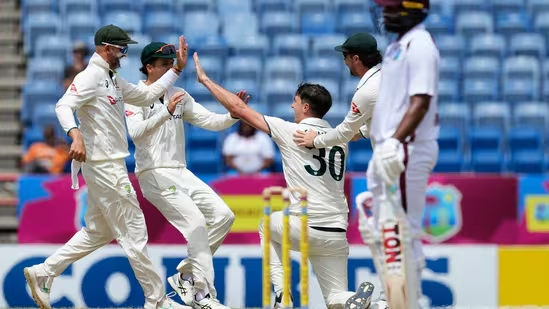As the Indian Premier League (IPL) 2025 looks to resume in mid-May after a temporary suspension caused by geopolitical issues, there are new challenges facing the Board of Control for Cricket in India (BCCI) and the franchises. While the focus has shifted back onto the field, the off field issues – particularly the unavailability of many foreign players – could affect the tournament’s ability to resume smoothly.
IPL 2025: Where We Are
The 18th season of the IPL was going along quite nicely until the suspension. The suspension occurred after tensions escalated between India and Pakistan, which led to the cancellation of the Punjab Kings and Delhi Capitals match in Dharamshala. The situation has settled enough that it should be possible to restart the tournament, however many of the international players who left the country during the suspension period are now not even going to return.
A number of reports have indicated that there are 16 matches left to be played including the 4 playoff matches and the grand final. The BCI is preparing for a compressed schedule that will likely include a number of double headers, but are awaiting formal clearance from the government. The BCCI has its sights on late May for that schedule. The final scheduled for May 25 will have the potential to move back to May 30. In addition, there are conflicting reports that the venue for the final is being changed from Eden Gardens in Kolkata to the Narendra Modi Stadium in Ahmedabad due to the fact that it may rain.
The Availability of Foreign Players
Nevertheless, even before the prognosis is favorable, the teams are already dealing with potentially having many of their foreign players not returning. A report by Revsportz mentions that the Royal Challengers Bengaluru (RCB) have already been made aware that one key foreign batsman will not be returning. An additional potential unavailability, Josh Hazlewood (Australian fast bowler) has been injured and there are strong suggestions that he will not be rejoining.
There are a number of players from Australia and South Africa that appear to be prioritizing national duty or recovering from the injuries to skip the IPL, with the ICC World Test Championship (WTC) final on June 11 and a Test series between South Africa and Zimbabwe in early June.
Impossible Action: The Force Majeure Clause
Naturally, franchises are upset at the unavailability of key overseas stars at this stage of the IPL.However, given the facts surrounding IPL contracts, it appears that teams will have limited or no legal ability to penalize or act against these players.
The center of the issue is the force majeure clause. No in many, if not all, commercial contracts, there are a number of issues we have to be concerned about when we contract for a player involved in a global sporting event. The force majeure clause effectively ends the contractual obligation of a person due to unforeseeable or extraordinary circumstances which are outside of their control, as we have seen in the case of IPL which resulted in a unilateral suspension due to geopolitical issues.
This means a foreign player that chooses not to return, citing safety concerns, government advisories, or their own state of mind, will not be able to be challenged in that decision legally nor monetarily by the franchises.
Franchise Rights
This clause has left IPL teams of the hook. They might understand the personal views of the players but BCCI is a business first and foremost and they obviously want results. However, with such little time left and matches approaching of great significance, franchise teams are now again having to try to locate and onboard replacement players at a moment’s notice (if at all).
Also, many of the potential replacements may be busy with current or impending international commitments or simply won’t be available as they share the same fears. For franchises suffering from the overseas player shortage it will hurt some worse. For example, a team like RCB and Punjab kings who are heavily reliant on utilizing high-quality overseas players may forcing to rely on domestic players or unused bench players. It has the potential to not only alter team designs but maybe even the competitive nature overall of the tournament.
Player Availability Vs National Duty
Then we have the layering of the international cricket boards. For instance, we have the WTC final and bunch of bilateral series coming up, so Cricket Australia, as an example, may call players back early even if they are physically ready to play the remaining IPL games.
Let’s look at undeniably, Josh Hazlewood. There is a low chance we will see him back as he was injured and Australian men’s team is preparing for the WTC final. Cricket Boards will naturally want to save the players for red-ball cricket; more notably for marquee events like Test cricket. The BCCI will not have any recourse if the IPL players return sooner than when the tournament is first scheduled, nor do they have to say they will come back, but they should know that similar events will take place namely IPL squads becoming weaker.
What’s Next?
Although the BCCI has not formally announced the matter as of yet, BCCI is continuously discussing the topic among themselves. In the meantime, these franchises have a very short window to prepare for themselves with alternate plans B, C, and D.
From reports, the BCCI will increase the number of double-headers to complete the remaining 12 games of the league phase before the playoffs. To that end, the schedule will lay out the completion of all the matches within the shortened time frame, ensuring matches will be completed on or around May 30.
As for venues, the southern cities of Chennai, Bengaluru and Hyderabad are being considered for the remaining league matches, and with a rain-hit Eden Gardens as a backup venue, Ahmedabad looks set to microwave the playoffs and final.
In Conclusion: Flexibility
In 2025, as the IPL resumes and in a much reduced time frame with uncertainty of overseas players, it will be very much the watchword for franchises and the BCCI.
The absence of overseas players will be a blow, but it will also allow domestic players to prove themselves and get the opportunity to doing so, not just for the IPL, but the great game of cricket moving forward.
While the force majeure clause provides no or very limited avenues for franchises, the IPL was established on the mandate of resilience, excitement and opportunity. With astute planning, be it on the field or off, the IPL can still deliver the excitement that the viewing public globally are anticipating.





